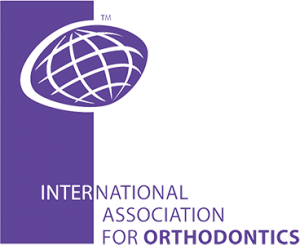It is very important that wisdom teeth be pulled before they can become impacted and compromise your oral health. However, pulling teeth comes with its own unique set of challenges. While some discomfort is expected in the time directly following a wisdom tooth extraction, it is also possible that this discomfort can begin to intensify instead of fading away. This is the first sign of a condition called alveolar osteitis, more commonly known as dry socket. We invite you to read this page for more information on dry socket, its symptoms, and what Dr. Andre Hughes can do to help.
What Exactly Is Dry Socket?
Dry socket is a condition that is experienced by a low number of patients who have teeth extracted. When a tooth is removed, an empty socket is left behind, in which that tooth used to sit. To protect this area, the body creates a blood clot in the socket that keeps it safe while it recovers. That said, should that blood clot become dislodged, then food particles and bacteria can get into the socket. This can result in an infection that will cause pain and discomfort until it heals.
This condition can arise in any patient having teeth removed. However, certain patients have a higher chance of developing dry socket than others. For instance, patients who smoke and patients with poor oral hygiene are more likely to experience dry socket. On another note, patients who drink with a straw during the recovery period following a tooth extraction can have a higher chance of developing dry socket, as the suction required to use a straw can dislodge the blood clot.
Symptoms of Dry Socket
Some signs that a patient has dry socket include:
- Severe pain following a tooth extraction
- Loss of the blood clot protecting the socket (the socket will appear empty)
- Bone is visible in the socket
- Pain that can be felt in the ear, eye, temple, or neck on the side of the extraction
- Bad breath
- Unpleasant taste
- Swollen lymph nodes in the jaw or neck
- A slight fever
How We Can Treat Dry Socket
Fortunately, treating dry socket is very easy. For the most part, the condition will fade away on its own after three to seven days. Because of this, treatment options for the condition largely focus on alleviating the symptoms of the condition. This is generally done with over-the-counter pain relievers, such as aspirin and ibuprofen. If these drugs don’t work, then Dr. Hughes can prescribe something stronger.
In some cases, the patient may need to come in to our office so that Dr. Hughes can remove any debris left behind in the empty socket. A special paste will then be applied to the socket that will help it heal. An antibiotic or special mouthwash may also be recommended to prevent infection.
Treat Dry Socket at Christie Park Dental
Fortunately, chances are high that you will not experience any complications following your Toronto wisdom tooth extraction. That said, should you develop dry socket following your treatment, rest assured that Dr. Hughes can alleviate the problem. If you would like to learn more about dry socket or wisdom teeth extractions here in Toronto, ON, contact our office and schedule a no-obligation consultation today.



